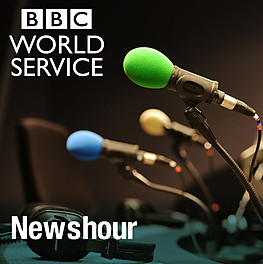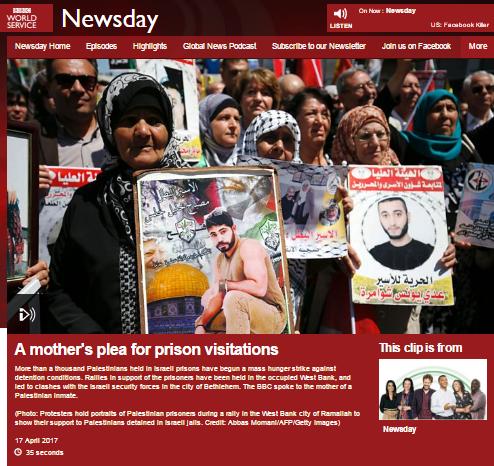Back in October 2018 the BBC announced a public consultation on the topic of its Editorial Guidelines.
BBC Watch made a submission to that consultation and on July 8th we were informed that, following approval by the BBC Board, the revised Editorial Guidelines – available here – have been published and that they “will formally come into effect for all new output from Monday 15 July 2019”.
While much of the revised guidelines will seem familiar to those acquainted with the previous ones, there are nevertheless some points worthy of note.
Section 3 – Accuracy – includes a clause titled ‘Correcting Mistakes’.
“3.3.28 We should normally acknowledge serious factual errors and correct such mistakes quickly, clearly and appropriately. Inaccuracy may lead to a complaint of unfairness. An effective way of correcting a serious factual error is saying what was wrong as well as putting it right.
Mistakes in on-demand and online content
Where mistakes in our on-demand content, which is available online after broadcast, are unlikely to be a serious breach of editorial standards, a correction should be published on that platform, so that it is visible before the output is played. Such on-demand content does not then normally need to be changed or revoked.
Where mistakes to our on-demand content are likely to be considered a serious breach of editorial standards, the content must be corrected and the mistake acknowledged, or in exceptional cases removed. We need to be transparent about any changes made, unless there are editorial or legal reasons not to do so.
In online text content, any mistake that alters the editorial meaning should normally be corrected and we should be transparent about what was wrong.” [emphasis added]
In relation to online content, BBC Watch pointed out in our submission to the consultation that:
“The addition of footnotes to clarify that a correction has been made is sporadic and lacks consistency. This procedure needs a serious review and overhaul: the purpose of a correction is, after all, to ensure that audiences get the correct information. The BBC should be doing much more to ensure that is the case and improve its transparency.”
Section 4 – Impartiality – includes a clause headed ‘News, Current Affairs and Factual Output’.
“4.3.11 Presenters, reporters and correspondents are the public face and voice of the BBC – they can have a significant impact on perceptions of whether due impartiality has been achieved. Our audiences should not be able to tell from BBC output the personal opinions of our journalists or news and current affairs presenters on matters of public policy, political or industrial controversy, or on ‘controversial subjects’ in any other area. They may provide professional judgements, rooted in evidence, but may not express personal views on such matters publicly, including in any BBC-branded output or on personal blogs and social media.” [emphasis added]
The same section also has a clause titled ‘Contributors’ Affiliations’.
“4.3.12 We should not automatically assume that contributors from other organisations (such as academics, journalists, researchers and representatives of charities and think-tanks) are unbiased. Appropriate information about their affiliations, funding and particular viewpoints should be made available to the audience, when relevant to the context.” [emphasis added]
The word funding did not appear in the draft proposal presented for consultation.
Section 11 – War, Terror and Emergencies – includes a clause titled ‘Accuracy and Impartiality’ which states:
“We should make it clear if our reports are censored or monitored or if we withhold information under duress, and explain, wherever possible, the conditions under which we are operating.”
That section was worded slightly differently in the draft proposal presented for consultation and in our submission BBC Watch related to it as follows:
“b) Section 11.3 Accuracy and Impartiality:
“We should normally say if our reports are censored or monitored or if we withhold information, and explain, wherever possible, the rules under which we are operating.”
This important clause would benefit from the addition of the words ‘and conditions’ after ‘rules’ – especially in relation to reporting from areas under the control of terror organisations such as the Gaza Strip.”
The same clause goes on:
“Reporters and correspondents must be aware that comments they make on social media accounts that relate to their BBC work may be perceived as having the same weight as a BBC report, so should bear in mind the requirement for due accuracy and impartiality at all times.”
Section 11 gives instructions on ‘Use of Language’ which are very similar to the previous ones.
“11.3.5 Our reporting of possible acts of terror should be timely and responsible, bearing in mind our requirement for due accuracy and impartiality. Terrorism is a difficult and emotive subject with significant political overtones and care is required in the use of language that carries value judgements. We should not use the term ‘terrorist’ without attribution.
11.3.6 The word ‘terrorist’ itself can be a barrier rather than an aid to understanding. We should convey to our audience the full consequences of the act by describing what happened. We should use words which specifically describe the perpetrator such as ‘bomber’, ‘attacker’, ‘gunman’, ‘kidnapper’, ‘insurgent’ and ‘militant’. We should not adopt other people’s language as our own; our responsibility is to remain objective and report in ways that enable our audiences to make their own assessments about who is doing what to whom.”
BBC Watch’s submission noted that:
“It is obviously futile to reuse the same editorial guidelines which BBC journalists have been openly – and rightly – breaching for years in reports on terrorism in Europe and the UK. The issue of continuity in reporting acts of terror wherever they occur is clearly a major point which this draft guideline does not adequately address.”
One area in which the revised guidelines are somewhat clearer than the previous ones is ‘Conflicts of Interest’ and the accompanying guidance document on ‘Social Media’ is also relevant.
“All BBC activity on social media, whether it is ‘official’ BBC use or the personal use by BBC staff is subject to the Editorial Guidelines and editorial oversight in the same way that our on platform content is. […]
Social media platforms provide an invaluable opportunity for both BBC output and staff to share content and engage with others in an informal environment. But just as everything we do on our own platforms is informed by the Editorial Guidelines, so is all our activity on social media platforms – whether it is in a ‘professional’ or ‘personal’ or capacity. […]
Disclaimers written in biographies such as ‘my views not the BBC’s’ provide no defence against personal expressions of opinion on social media that may conflict with BBC guidelines.
Individuals involved in the production or presentation of any output in News or other factual areas that regularly deal with a range of public policy issues have a particular responsibility to avoid damaging the BBC’s impartiality.” [emphasis added]
Although these revised Editorial Guidelines clearly reflect an effort to make them more user-friendly and concise, as we pointed out in our submission:
“While the periodic revision and updating of editorial guidelines is obviously necessary, there is little point in expending so much publicly-funded effort if the end product is not adhered to by BBC staff and enforced by the BBC itself. Sadly, our experience shows that is all too often not the case.”
Whether or not the new guidelines will indeed be effective of course remains to be seen.
Related Articles:
Why the new BBC editorial guidelines may not mean less terror showcasing
Are BBC guidelines on ‘language when reporting terrorism’ about to get worse?




